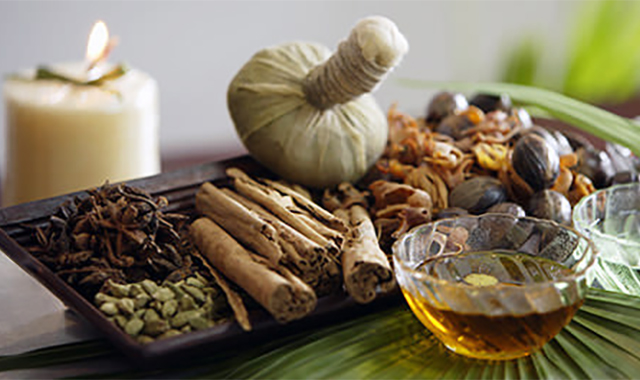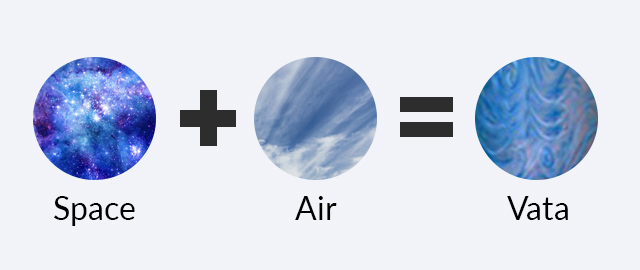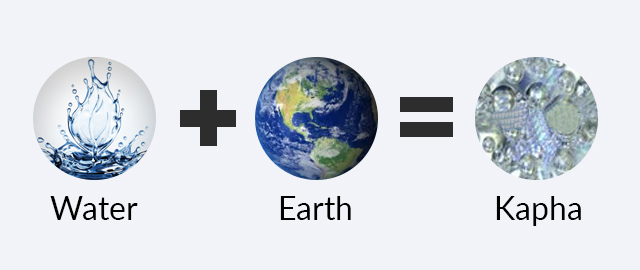Ayurveda
Ayurveda is a 5,000-year-old system of natural healing that has its origins in the Vedic culture of India. Although suppressed during years of foreign occupation, Ayurveda has been enjoying a major resurgence in both its native land and throughout the world. Tibetan medicine and Traditional Chinese Medicine both have their roots in Ayurveda. Early Greek medicine also embraced many concepts originally described in the classical ayurvedic medical texts dating back several thousands of years.
More than a mere system of treating illness, Ayurveda is a science of life (Ayur = life, Veda = science or knowledge). It offers a body of wisdom designed to help people stay vital while realizing their full human potential. Providing guidelines on ideal daily and seasonal routines, diet, behavior and the proper use of our senses, Ayurveda reminds us that health is the balanced and dynamic integration between our environment, body, mind, and spirit.


Vata in sanskrti means “wind”. As the name suggests Vata Dosha is about controlling the flow or the movement in the body. Vata is the most important dosha as it controls other two dosha. Any imbalance in Vata Dosha can cause imbalance to the other two doahs and lead to a condition called tridosha imbalance, which is very difficult to overcome. Vata dosha is responsible for spiritual as well as physiological functions in the body. This means movement of thoughts, energy, blood and other fluids in the body is controlled by Vata Dosha.

Pitta dosha is formed by combination of two elements fire and water. All the physiologicalt processes with respect to energy production, metabolism and heat are controlled by Pitta Dosha. All the processes related to digestion of food, production and consumption of energy are governed by Pitta Dosha.

Kapha dosha is a combination of earth and water. And, just like the earth, the role of Kapha Dosha is to give stability to body and mind. Kapha dosha also maintains the water content in the body. Mentally, the Kapha Dosha is responsible for regulating emotions.